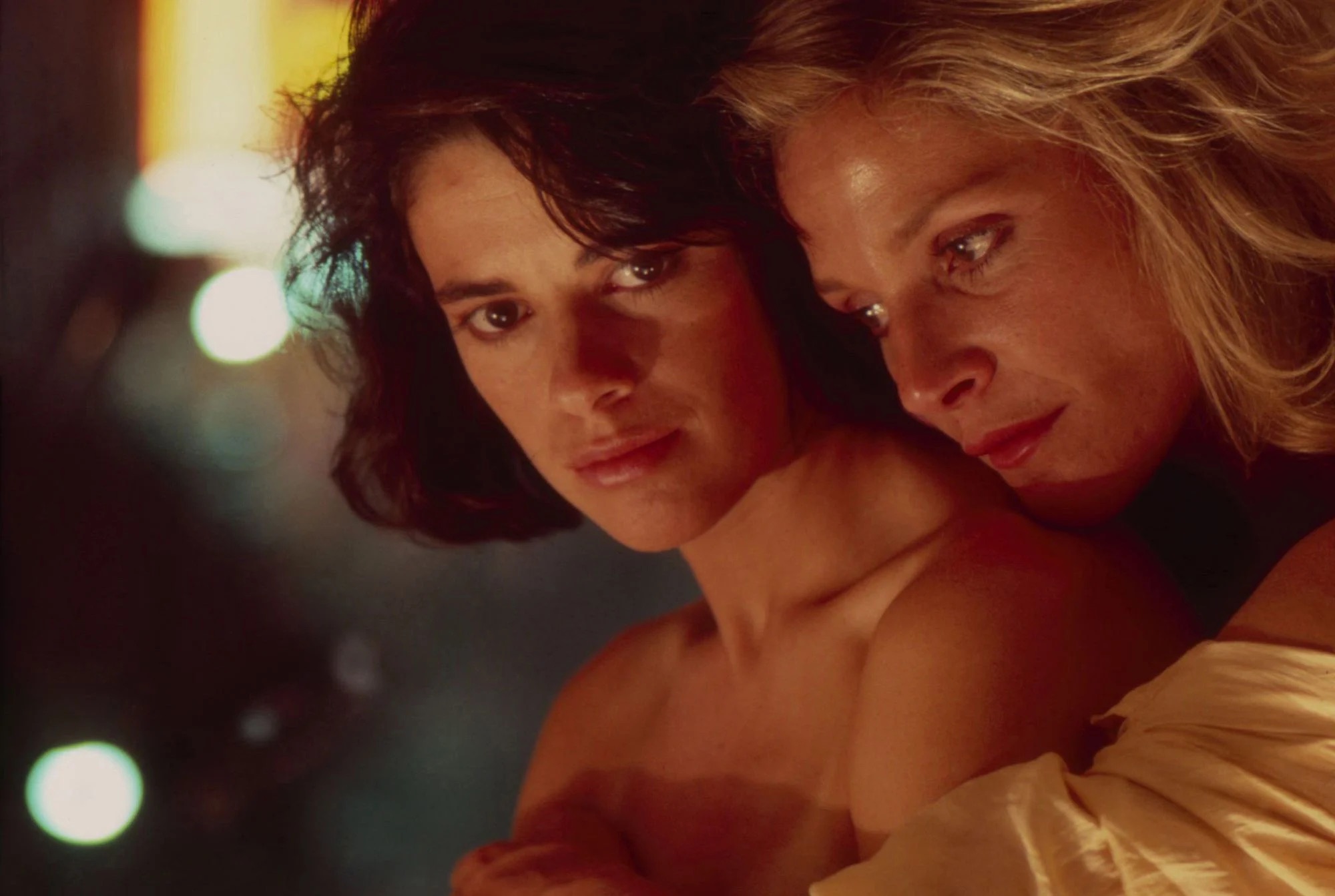Desert Hearts (1985) is a groundbreaking romantic drama set in the 1950s that explores self-discovery, desire, and forbidden love. The story follows Vivian Bell (Helen Shaver), a reserved and sophisticated literature professor from New York who arrives in Reno, Nevada, seeking a divorce. She stays at a guest ranch owned by Frances Parker (Audra Lindley), a woman who provides temporary lodging for women awaiting their divorces. While Vivian expects a quiet period of reflection, her world is turned upside down when she meets Cay Rivvers (Patricia Charbonneau), Frances’ free-spirited and confident surrogate daughter. Cay, who works at a casino and openly embraces her attraction to women, immediately takes an interest in Vivian, sensing something beneath her polished and restrained demeanor.
At first, Vivian is wary of Cay’s flirtations, unsure of how to respond to feelings she has never allowed herself to acknowledge. She has spent her life following rules and expectations, while Cay represents everything she has been told to suppress—passion, freedom, and emotional honesty. As they spend more time together, a mutual attraction builds, creating tension between them and those around them. Frances, protective of Cay, disapproves of the relationship, believing it will only lead to heartbreak. Meanwhile, the conservative atmosphere of 1950s Nevada looms over them, making it clear that their love is not something easily accepted by society. Despite these obstacles, Cay refuses to hide who she is, challenging Vivian to confront her own fears and desires.

As their connection deepens, Vivian struggles with the consequences of embracing her feelings for Cay. The idea of surrendering to love both excites and terrifies her, as it threatens the structured life she has carefully built. However, Cay’s persistence and unwavering honesty make it impossible for her to deny what she truly wants. After much inner turmoil, Vivian finally gives in, allowing herself to experience a passionate and intimate relationship with Cay. Their romance is both tender and electrifying, marking a transformative moment in Vivian’s life. For the first time, she experiences love that is not dictated by societal norms but by genuine connection and desire. However, their happiness is short-lived as reality begins to intrude, forcing them to confront whether their love can survive beyond the confines of the ranch.
Frances’ disapproval escalates, and the pressure of the outside world threatens to tear them apart. Vivian, still struggling with her identity, fears the repercussions of staying with Cay, while Cay, unwilling to be anyone’s secret, demands honesty and commitment. Their differences reach a breaking point, and Vivian prepares to leave, believing that she must return to her old life. Yet, in a moment of courage, she realizes that love—true, unfiltered love—is worth fighting for. Instead of retreating into safety, she takes a leap of faith and asks Cay to come with her, proving that she is ready to embrace the unknown for the sake of love.

The film ends on a hopeful note, with Vivian and Cay choosing to move forward together despite the uncertainty ahead. Desert Hearts is a powerful and deeply emotional story about breaking free from societal expectations and embracing one’s true self. With breathtaking cinematography and raw, heartfelt performances, it remains one of the most influential and beloved LGBTQ+ romances in cinema history, capturing the beauty and bravery of love in a world that seeks to deny it.





